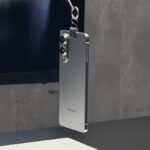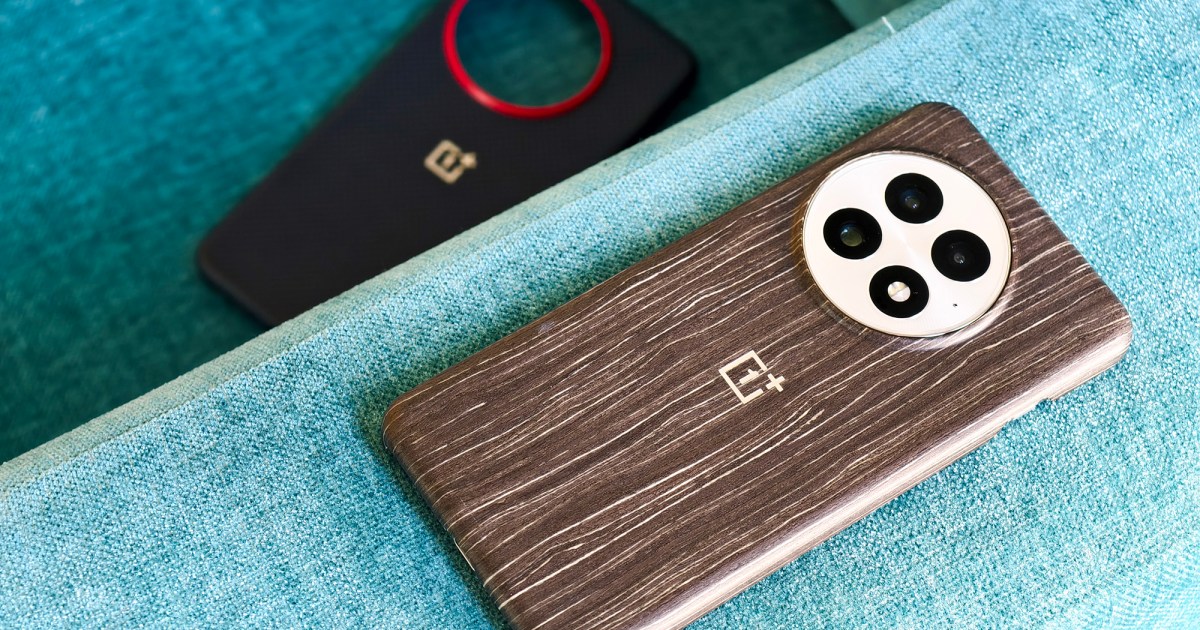The OnePlus 13 is a very exciting phone. Even though we’re just a few weeks into 2025, this feels like one of the most compelling candy bar-style phones to launch this year. It marks massive leaps for OnePlus’ flagship lineup, especially with improved resistance against water and dust with its IP68 and IP69 ratings.
What truly makes OnePlus 13 fanciful to me is its freshly added support for the “Mag” line of accessories. These magnetic accessories are designed to make your time with the OnePlus 13 much more convenient and elevate its status further into the ranks of flagships. Here’s how these accesories and features have made the OnePlus 13 more endearing to me.
The new OnePlus accessories
With the OnePlus 13’s global launch announcement, OnePlus unveiled two broad classes of accessories. These include a range of magnetic cases and a fast wireless charger. Let me talk about the former first.
The term “magnetic cases” seems vague and might indicate that the cases snap onto the OnePlus 13 magnetically. But that’s not the case (pun unintended). Instead, these cases have magnets under the humongous camera cutout to attach accessories magnetically.
The concept is very unambiguously inspired by MagSafe on the iPhone. But unlike Apple, which places the magnets inside the phone, OnePlus chose to limit them to the cases it has launched with the OnePlus 13. That’s a popular approach third-party case makers take to bring MagSafe compatibility to older iPhones and non-Apple flagships. Less popular brands have used this route to add magnetic charging to their phones, though OnePlus is among the first mainstream brands to have adopted it. Magnets inside the cases allow you to use the most desirable MagSafe-compatible accessories, such as charging stands and wireless power banks, cardholders, pop sockets, etc., with the OnePlus 13.
OnePlus has several cases made exclusively for the OnePlus 13. The first is the Aramid Fiber case, which appears to mimic the weaving pattern of blue and black vegan leather fibers on the OnePlus 13’s blue variant. The “Wood Grain” option is made of synthetic material and reinforced by wooden veneer, making it feel like wood to complement the “Black Eclipse” variant. The Wood Grain case comes in light and dark colors to mimic something like rosewood and maple wood.
- 1.
OnePlus 13’s Aramid Fiber Magnetic Case - 2.
OnePlus 13’s Wood Grain Magnetic Case - 3.
OnePlus 13 with Sandstone case and wireless charging insert
The other case finish evocative of sandstone, which has a long history with the OnePlus brand, starting with the very first mathematical expression from the company — the OnePlus One. Now, the caveat with these cases is that you will need to purchase them separately, and they may not feel as economical as the unofficial options. You will need to shell out $25 for the Sandstone case and $40 for the fiber and the wood grain ones.
While these prices seem higher than even the best OnePlus 13 cases, there is an undeniable sense of lavishness attached to these finely crafted pieces. I will get back to what I think about the pricing later, but first I’ll discuss the potential use cases.
MagSafe-like functionality

The first and most obvious utility is that of wireless charging. The MagSafe-like circular ring allows you to magnetically connect the OnePlus 13 to any magnetic charger. For a while now, I have been using a simplistic Ugreen stand on my bedside table to anchor my iPhone at night and as a nighttime clock. With every Android phone with wireless charging that I test, I get one of those cases with a MagSafe-like circular ring to attach the phone to a charging stand.

Admittedly, those cases feel cheap, and the magnetic rings start peeling very quickly, which I don’t expect of these OnePlus cases.
Magnetic power banks, such as the one from Baseus I have photographed, work equally well. But with both the charging stand and the power bank, charging rates only sufficiently pump juice for times when you’re not using the phone, and I wouldn’t depend solely on them.

That is because typical wireless chargers — and power banks — charge at a slow rate, between 5 watts and 10 watts, which may reduce even further as the phone heats up. So, it’s not as game-changing as OnePlus’ own fast wired or wireless charging solutions, but it can be a backup when you either don’t have a cable to charge the phone or need just enough charge to keep the phone going without the hassle of cables.
Interestingly, OnePlus launched a magnetic wireless power bank with a 5,000mAh capacity in China alongside the OnePlus 13 in October. This device skipped the global launch earlier this month, but received Federal Communications Commission certification, suggesting we might see a broader release soon. This, too, however, will be limited to 10W of output.
Replicating the iPhone’s StandBy mode

Despite the slow charging speeds, magnetic cases allow the OnePlus 13 to be used with any MagSafe-compliant charger, such as the Baseus Nomos 5-in-1 140W charger. Its charging pad is wide enough to dock the OnePlus 13 easily, while the strong magnets hold it firmly. The base can be adjusted and extended further away from the charger so it does not block the cables attached below.

The multi-port charger is a useful addition to my desk. But the wireless charging functionality makes it an indispensable part. Although Android does not have a native StandBy mode like on the iPhone, there are a few apps that enable this functionality. And that’s what I chose to use with the OnePlus 13.
I chose an app called StandBy Mode, which has a lovely, to-the-point name. With specific settings, the app turns on automatically when a wireless charger is connected and even works on the lock screen. In the free version, there is a collection of digital and analog clocks, along with a host of other widgets that can stay constantly on the screen, and I primarily use two of those.
First, I use the music player widget, mainly because it reminds me of my iPod Classic. The music player occupies the entire display, showing only music-related controls and eliminating distractions. The app also allows swiping up and down and sideways, so you can switch between the types of widgets.
In addition to admiring the music player, I have been exercising my concentration viathe timer on the app. Here, I break down my work hours in Pomodoro fragments (mostly 25 minutes), which gives me a sense of urgency. With each passing second, the screen fills up in blue in a satisfying manner, calmly summoning me to get to work instead of squandering my time away, aimlessly switching from one tab to another.

The app also has measures to prevent the display from getting damaged by issues like burn-in, which might otherwise occur if the same visuals are displayed for a long duration.
Thanks to OnePlus’ small addition of supporting magnetic chargers, this has become central to my workstation and is helping me accomplish more.

But because the OnePlus 13 only supports Qi wireless charging with third-party solutions, it might be tricky — and vexing — to charge it faster. This is where OnePlus’ own charger comes into play.
OnePlus’ new wireless charger is a boon

OnePlus has played a significant role in standardizing fast charging on phones. In the mid-2010s, it was among the earliest phone brands to bring faster charging to its devices, amping up charging speeds to 20W when a 5W to10W charging rate over wired connections was the norm.
Like the OnePlus 12, the OnePlus 13 also gets 100W fast wired charging (80W in North America), which should charge the 6,000mAh battery entirely in about 45 minutes. The phone, like its predecessor, has also been blessed with fast wireless charging.
Although there hasn’t been an upgrade in the charging speeds since last year, OnePlus has introduced a new wireless charging solution. This new AirVOOC charger ditches the standing orientation and clamps onto the phone magnetically, similar to a MagSafe puck. It is, however, much bulkier and chunkier than a puck.

The new wireless charger can pump power into the OnePlus 13 or previous OnePlus phones with wireless charging of up to 50W. Even though that’s not as fast as the wired connection, there are a few apparent advantages. Firstly, magnetically snapping the charger on and off is far more convenient than fiddling with the plug. Imagine walking by your desk or charging station where you usually charge your phone and casually bringing it closer to the charger, letting it connect and start charging automatically.

You could argue that while wireless charging is convenient, spending $80 for something that saves a few seconds every time you plug and unplug the phone doesn’t really make sense. Fair enough! This might not seem like a convenience that everyone would find to be worth it. But there are more useful applications than the ease of charging. In addition to the fast charge speeds, you can use the charger as a makeshift stand to use the OnePlus 13 in landscape mode.
In addition, I see the wireless charger really shine when used while gaming.
A huge advantage for gaming

Gaming, irrespective of the phone, is already an intensive task. It gets even more intense with the OnePlus 13 since the Snapdragon 8 Elite powering it features a major overhaul in the CPU structure. Instead of the regular mobile-specific cores, the new Snapdragon 8 Elite has cores built on Qualcomm’s Oryon architecture, which was previously limited to the Snapdragon X Elite — a chipset meant for laptops. Qualcomm has also eliminated any efficiency cores. While this design change improves performance by a fair margin, it also increases the chipset’s tendency to spit out more heat.
The reason OnePlus’ new wireless charger is useful here is that it comes with a fan built in. More importantly, the surface that attaches to the OnePlus 13 has a thermoelectric cooler. In principle, a thermoelectric cooler uses electric current to remove heat from a body or a system. In practice, the contact pad, in addition to charging the OnePlus 13, extracts heat generated by wireless charging and diffuses it into the surroundings using the fan.

So, in addition to its regular utility, the wireless charger can be used to cool the phone down and prevent — or reduce the impact of — any performance throttling during intensive activities like gaming. To test this idea, I played Genshin Impact at the highest graphics settings at 60 frames per second (fps), with HDR enabled from OnePlus’ own game enhancement settings for two 30-minute sessions, with and without the charger. I found the charger to keep the temperatures relatively under control, and the screen barely even got warm despite the long duration of the game.
To test this theory further, I ran Burnout Benchmark, a synthetic benchmark that emulates high-load scenarios on Android. After running the benchmark in three different configurations — without a case, with the magnetic case, and with the magnetic case and the wireless charger attached, I could corroborate my initial impression. Here’s a graph comparing the CPU performance in all three scenarios:

The yellow line leads ahead of the red one, indicating that the wireless charger with a built-in cooler helped the OnePlus 13 reverse from a stressful situation faster than without it. Of course, not using a case is more efficient than both scenarios since it exposes the metal frame to the surroundings, but the cooler definitely improves cooling. This trend was expected since charging also adds heat to the system, which the charger effectively subsided.
Benefits from the existing ecosystem of products

Wireless charging has largely remained a feature exclusive to flagships. That’s because its effectiveness, primarily owing to the slow charging speeds, has been debated. But for a few years, OnePlus and its parent company, Oppo, have attempted to address those concerns by offering superfast wireless charging solutions.
Now, it’s vital to emphasize that the advantage of wireless charging lies in its convenience and not fast charging speeds. OnePlus gladly offers both. But by adding MagSafe-like functionality, OnePlus has opened doors for a broad range of accessories, including, but not limited to, chargers, wallets, pop sockets, camera and webcam mounts, SSD enclosures, and more.
While one could say part of the functionality from magnetic cases can also be achieved with standard MagSafe-inspired cases for the OnePlus 13, there is still a dearth of premium options compared to flagships from Samsung and Apple. So, it’s essentially OnePlus plugging those gaps itself thoughtfully. This step might inspire more case manufacturers to offer options between the bland transparent cases and OnePlus’ official ones.
Overall, I feel it is a positive move from OnePlus, and one that will make you cherish the flagship experience on the OnePlus 13 even more.
Read the full article here















